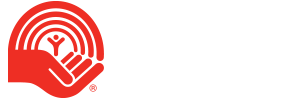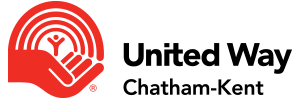 The local nonprofit sector has seen big strides in collaboration over the past year with the Social Planning & Action Tables! If you want to learn more about them, we interviewed our newest staff member Eva Marie Clarke (who helps facilitate the Tables’ weekly virtual meetings) to get her take on them.
The local nonprofit sector has seen big strides in collaboration over the past year with the Social Planning & Action Tables! If you want to learn more about them, we interviewed our newest staff member Eva Marie Clarke (who helps facilitate the Tables’ weekly virtual meetings) to get her take on them.
1. Welcome to the team! Tell us a bit about yourself.
I’m brand new in the Chatham-Kent community – basically I came here for Christmas 2020, and never left! (It’s a long Covid story). My parents relocated here about 8 years ago, and I’ve had quite a few visits and always loved the area.
I’m a theatre/arts & culture/culinary nerd from Edmonton, Alberta – my social media handle is @yegartsdiva (which will have to change) – with a media, community engagement, cultural administration, and communications background. I’ve had the privilege of working in places such as CBC Radio Edmonton, for alternative news media, various small (but mighty) cultural organizations, Catholic Social Services (one of Canada’s largest social services agencies), Boyle Street Community League, and the Edmonton Arts Council. Adventures have included reporting on pollution from pig poo, writing an unauthorized biography of Shania Twain, creating an internet radio show for the Canadian Internet Registration Authority (CIRA), convincing people that public art is not evil, and reviewing more theatre and opera productions than I can count!
Speaking to people and coming up with interesting, relevant ways to address issues and gaps makes me happy – and enlivens the workday.
I love to cook, am told my pastry and bread are fabulous, and once the pandemic is over, will be seen exploring Chatham with my rather bossy Pomeranian, Lily.
It’s a huge pleasure to be with United Way, and I am looking forward to learning more and more about the organization and its 163 community partners!
2. Part of your role is helping to facilitate the Social Planning & Action Tables. Even though you’re new to this role (and to Chatham-Kent!), how would you describe what the tables are?
The Social Planning & Action Tables are essentially a forum for people working in the human care and social service delivery sectors to meet virtually, discuss issues, and really get a handle on where their areas of service or expertise intersect and how they can help each other serve the community.
The Tables also exist as a way for all these agencies to put their heads together and collectively create solutions for the challenges that just seem to
pop up like dandelions. You “fix” one and “oops, there’s another”. That isn’t meant to sound flippant, but it’s the best description that comes to mind.
In many ways, the people at the table serve as the voice of vulnerable people in CK – these are the frontline agencies and workers, so they are speaking to people, hearing their challenges/struggles and relaying what they hear.
3. These meetings have been happening virtually for more than a year now. What do the tables meet about and what are some of the organizations/groups that participate?
As described above, the Tables truly are a conduit for voices that don’t often get heard, and each embraces the “nothing about us without us” principle. I find that information-sharing and storytelling are a huge part of the call. Some of the issues I’ve heard discussed: vaccination logistics – how do we ensure people know what’s happening, have the information they need, can get to the Brady Centre? Child and partner violence – the CK Police Victim Services Unit are dealing with unprecedented increases in violent crime; the legislation and cultural protocols governing Indigenous consultation, the mental health crisis (the shadow pandemic) and how it’s not only affecting the community but also how frontline people are impacted.
I’ve seen 50-75 people Zoom in each Thursday. The call comprises a roundtable session at 8:00 am where the “Table facilitators” update everyone on issues that are discussed by the various tables. This is followed by participants entering their breakout rooms (Tables), which are as follows:
• At-Risk-Youth
• Child & Partner Violence
• Homelessness
• Human Trafficking
• Indigenous
• Mental Health
• Older Adults
• Peer-to-Peer
• Poverty
Some of the Social Planning & Action Table partners are:
• Big Brothers Big Sisters of Chatham-Kent
• Chatham-Kent Child Services
• Chatham-Kent Health Alliance
• CK Victim Services
• Municipality of Chatham-Kent – includes representation from multiple departments/programs including Public Health
• ROCK Missions
• Ska:na Family Learning Centre
• Street Health
• Walpole Island First Nation
• Wheatley Baptist Church Food Bank
4. What has your experience been so far? What have you learned about human and social services and the non-profit sector in Chatham-Kent?
The calls are intense – emotionally and also because of the practical logistics – how do we deliver x service to y people? The stakes are high, the challenges daunting, and the emotional fallout is indescribable. Sitting in on the weekly call will bring you face-to-face with some eye-opening realities.
But there’s also incredible hope. Each week we listen to updates about how a couple of the organizations planned successfully advocated to the Landlord-Tenant Board on behalf of precariously housed people; that ROCK is serving over 300 meals twice per week; that the Peer-to-Peer Table has attracted significant attention across Canada as a promising new model of care; how Indigenous spiritual practice can support healthy coping and self-care, or when someone has a funny story to tell – that’s uplifting.
What have I learned about the social & non-profit sector in CK? I don’t have data, but can say that these organizations and people are passionate, tireless, inventive, compassionate, incredibly knowledgeable and very, very generous.
I’m staggered by the variety of services available and diversity of organizations – from grassroots to governmental, as well as the many ways in which municipality residents individually are working to get things done.
5. Many groups have collaborated and shared resources as a result of participating in these weekly meetings, not just within the separate tables, but across tables as well. Do you have a sense of whether these collaborations will continue or whether new groups and organizations are joining the discussions?
The Social Planning Action Table stakeholders are so united and committed to what they’re doing, to supporting one another, and amplifying the collective voice, that I would be surprised if these collaborations stop. I’ve only sat on four of the weekly calls and facilitated one, but as the table members have talked and discussed the issues affecting them and ways to address, it’s become clear that there is a desire and need for a renewed and concerted community voice.
The atmosphere is incredibly welcoming and there is room for new groups and organizations – I’m adding new people to the contact registry each week.
These individuals are determined to advocate for the people they serve and are demanding a new level of community consultation on the part of municipal/governmental bodies. The community voice and demand for community consultation are things we’ve seen more and more in recent years as a result of Idle No More, the Truth and Reconciliation Commission, the Black Lives Matter movement, not to mention the myriad of grassroots endeavours that the past 18 months have sparked. People around the world are mobilizing and I do believe that the Social Planning Action Tables are part of that, and will be a very important part of building a post-COVID reality in Chatham-Kent.

